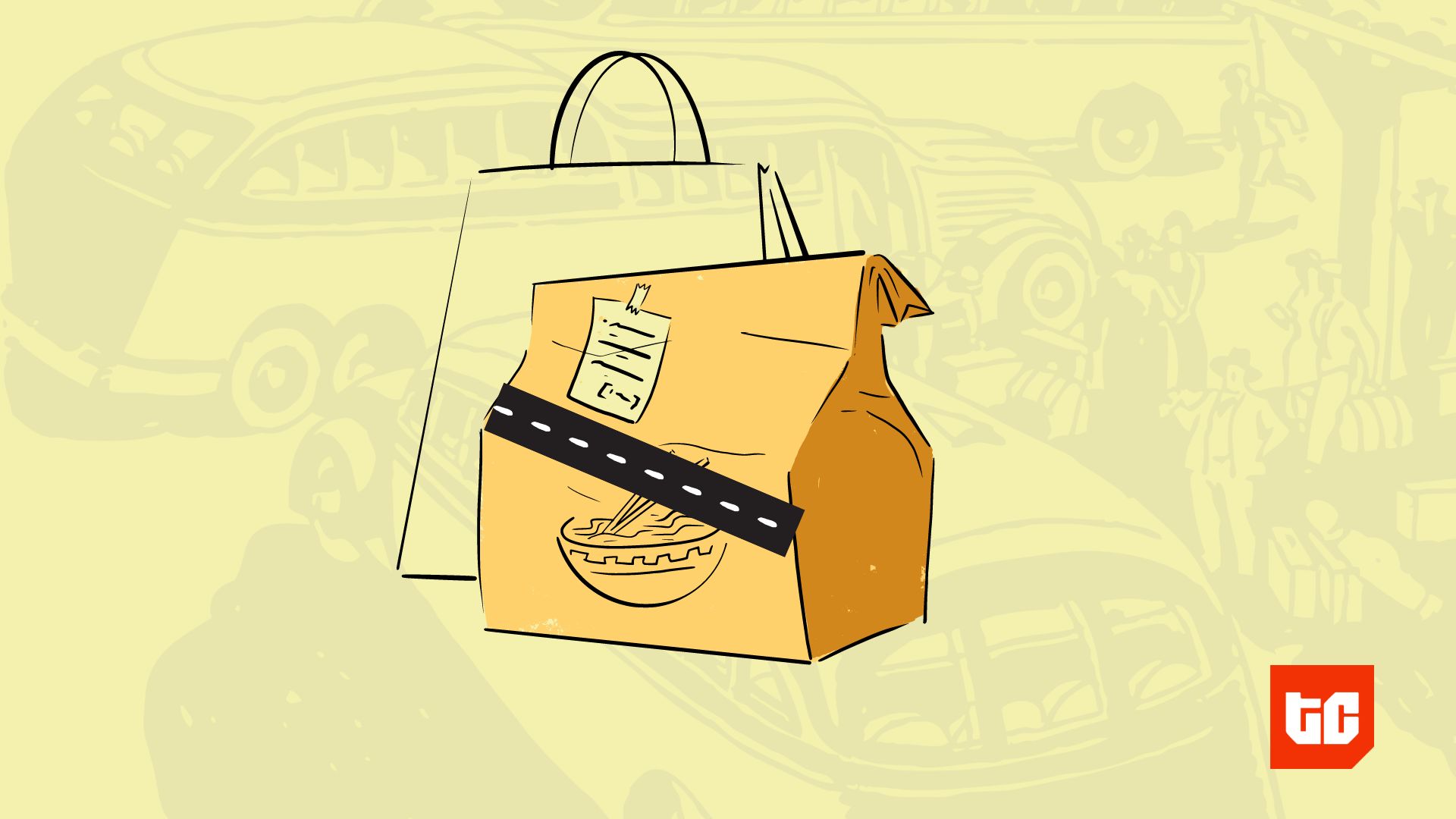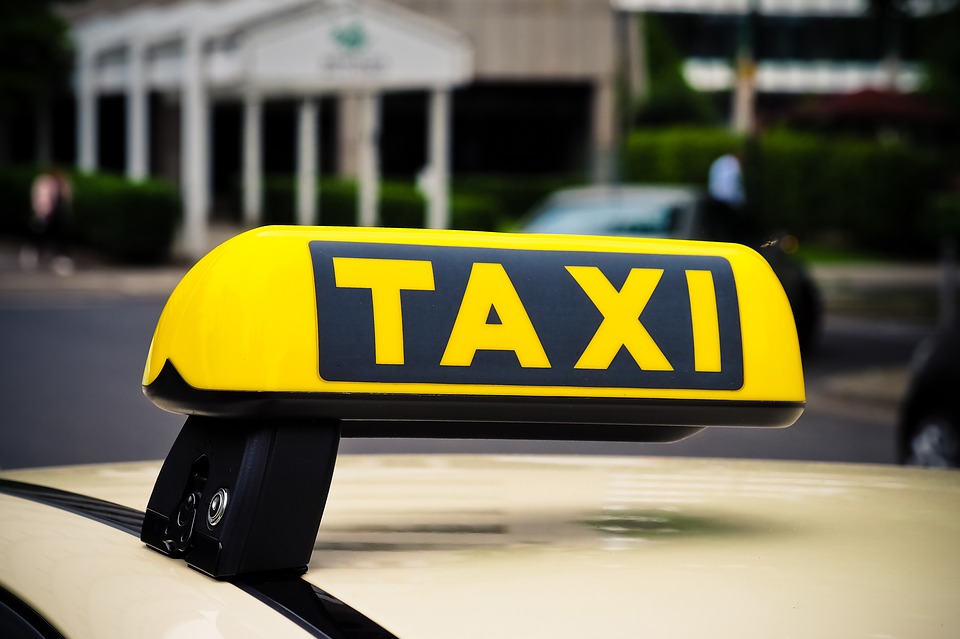In a megacity like Lagos, waiting for a food delivery is a true test of patience, and can often mean hours spent in hunger.
In Lagos, a city filled with people and bursting at the seams, food delivery is a difficult process, often hectic and fraught with frustration. Delivery companies and their riders have to navigate terrible road conditions, inaccurate map locations, and worst of all, Lagos’ notorious traffic congestion. For most of the city’s residents, ordering food online and receiving a prompt delivery are not a given.
“I would say that it has been traumatic and has been a huge test of my patience. Food delivery is terrible. That’s if you ask me,” said Femi Adetuberu, a finance expert and frequent user of food delivery services in Lagos. According to Adetuberu, ordering food online in Lagos has not been easy for him, especially when he is famished and expecting instant food delivery. He strongly believes the reason for this is a disconnect between the restaurant and the delivery personnel. “You meet a delivery person who feels they are doing you a favour or the attitude seems like they are doing you a favour. You get messages like Oga you are the only one eating this kind of thing, anything for your boys? Help us. The amount we get from this job is small. It occurs every time. If I want to order, I already know I will deal with delivery personnel that will be unprofessional,” he said.
Another Lagos resident, Uzor Gift, has lost all trust in on-time food delivery. “I order when I need it the most. Imagine waiting two hours for something that should have come in 35 minutes. And you’re hungry,” he exclaimed. All through 2022, Gift refrained from ordering food online and only resumed this year, still unsure of improved service delivery.
According to QSR Magazine, digital ordering and delivery have been growing 300% faster than dine-in traffic since 2014 and such, timeliness is an important aspect of food delivery patterns.
Data by the National Bureau of Statistics (NBS) revealed that Lagos residents spent N830 billion ($2 billion) eating out in 2019, representing 34% of total food expenditure. Similarly, Jumia Food in its 2020 Nigeria Food Index Report highlighted Lagos and Nairobi as the leading cities in terms of food order volume. However, for many customers and food vendors, the challenge remains prompt delivery and swift turnaround times for food orders.
The Lagos traffic situation
In 2021, a Lagos-based research institute, Danne Institute for Research (DIR), revealed that the state was losing about ₦4 trillion annually as a result of its notorious traffic congestion problem. According to the report titled “Connectivity and Productivity Report”, the economic cost resulted in 14.12 million hours wasted as people commuted to work every day.
The founder and executive director of the DIR, Professor Franca Ovadje, explained that long commutes between home and work, among other factors, are a major cause of unending traffic jams in Lagos.
Ovadje said, “We found that the cost to individuals of traffic congestion is N133,978.68 per annum for those who own their vehicles, and N79,039.40 each year for those who use public transport. The total loss to Lagos is estimated at 14.12 million hours per day, or N3,834,340,158,870 per annum.”
However, the state commissioner for information and strategy, Gbenga Omotoso, denied this. During a stakeholder engagement in January 2022, Omotoso argued that it was unfair to say that individuals or tourists lost significant man-hours while plying the state roads.
Despite Omotosho’s disagreement with the statistics, the average Lagosian’s experience with food delivery suggests that there is still a connection between the traffic congestion and food delivery time. Patience Lawal, a food vendor, told TechCabal, “For me, I make sure my customers place their order 24 hours before delivery. Oftentimes, it’s the dispatch riders that give us stress. They come late and even if they come on time, they don’t deliver at the stipulated time the customers want.”
Cost issues and lack of communication affect delivery times
Deborah Johnson, who owns and operates a confectionary business, admits that cost and communication are huge challenges when it comes to food delivery. “My experience with delivery firms generally is bad communication, especially in Lagos. In Lagos, it is terrible and unnecessarily expensive. I get Lagos is expensive itself plus traffic, but bikes can literally enter anywhere so deliveries shouldn’t be so slow. And the prices are ridiculous,” Johnson stated.
She recounted a certain experience where she hired a delivery service to drop off small chops for a customer and the rider was harassed by the police. She explained that she was agitated about the incident as she wanted to deliver good service to the customer and effective communication from the delivery service to her could have fixed that issue.
VisCorner.com estimates deliveries to cost between ₦700 and ₦10,000 per parcel for items below 5kg. Within Lagos, the deliveries could range from ₦700 to ₦3,000 using a dispatch rider. Adetuberu says the average delivery cost for his meals is pegged at ₦2,500. However he feels the pricing is fair. “The dispatch guys are actually daredevils; they are one of the fastest means of getting things across in Lagos. So, of course the pricing reflects that added advantage,” he said. Operations lead at Eden Life, Presley Tukpe, reveals that the cost of pre-ordered meals with delivery options is ₦3,950.
Dealing with regulation
In 2020, the Lagos state government prohibited commercial motorcycles, including bike-hailing startups, from operating in specified areas of the state. Several bike-hailing startups including Gokada, ORide, Max.ng, and SafeBoda were affected and had to reconsider their business models. Last December, Safeboda left Nigeria in hopes to deepen its “core transportation offering” in Uganda, its largest market. In a statement made available to TechCabal, it said Nigeria was not economically viable and still required more investment in the bike-ride hailing business. In 2019, OPay put out a similar statement, acknowledging the impact of the ban on its ride-hailing solutions and the pause of ORide, OCar and OExpress. Till date, none of those businesses have reopened. Gokada, on the other hand, laid off 80% of its workforce and pivoted from ride-hailing services to logistics.
However, some businesses chose to weather the storm. For example, Metro Africa Xpress (MAX.ng) has not completely disappeared from the scene. Last year, it announced plans to raise $100 million by 2023 to deploy its green mobility solutions in ten countries across the continent including Cameroon, Uganda and Egypt.
Till date, the Lagos State Government has continued the clampdown on bikes, making the operations of delivery services difficult and complicated. The current Lagos state governor Babajide Sanwoolu announced a total ban on the operation of commercial motorcycles in some local governments (LGs) and local council development areas (LCDAs) effective June 1, 2022. According to Omotoso, commercial motorcycles, popularly known as okada, are not in the transportation master plan of the state.
Pierre, reacting to worries about regulation, said that Glovo has always been in sync with the authorities to avoid any issues. He stressed the desire for the firm to liaise with the Lagos state government authorities in that regard.
How businesses are turning the tide
Founder and CEO of Glovo, Oscar Pierre, admits that fast delivery is a global want. “In Tokyo, New York, Barcelona, or Lagos, you will find customers that want to get food and products delivered very fast and at a cheap price,” Pierre said. However, he notes that there are teething problems with delivery in sub-Saharan Africa, which stem from underdeveloped infrastructure; poor roads, unstable electricity, and heavy traffic in the region.
But according to Pierre, all hope is not lost. “None of that stops us from building this value proposition of convenience. In Lagos, a very large majority of orders, close to 80-90%, are delivered below 45 minutes. That is quite convenient even though we can do better. If you go to Barcelona, you see the service works even better. The thing is that the bicycles and motorbikes skip the traffic,” he concluded.
Proper planning, time management, consumer patterns to the rescue
The recent World of Statistics survey ranked Lagos as the worst traffic city in the world in 2023. Some startups like Eden Life are successfully navigating this situation with clever solutions. Eden operations lead Presley Tukpe recommends planning and understanding consumer metrics as the key to succeeding against the traffic. Delving into the key success factor for Eden, he said sending out all deliveries at least two hours ahead is one way of improving the odds of completing deliveries on time and reducing the risk of running into problems with law enforcement.
“Ecommerce platforms have vague ideas when orders come in. What we have done at Eden Life is to properly estimate the number of riders needed for pre-orders. For same-day orders, we have been able to estimate when customers order for breakfast, lunch and the location they order to. We have to ensure everything that is needed is cooked, packed and ready to be delivered. Anything that will be delivered by 11 am, we work backwards to know that all the meals are ready by 8am, cooking is done by 6:30, and riders are on their way by 8am. We use the rider going to the farthest distance and most orders and then closest customers,” he explained.
This proves that despite the attendant issues that exist regarding deliveries, business can tweak their models to weather the storm.



















